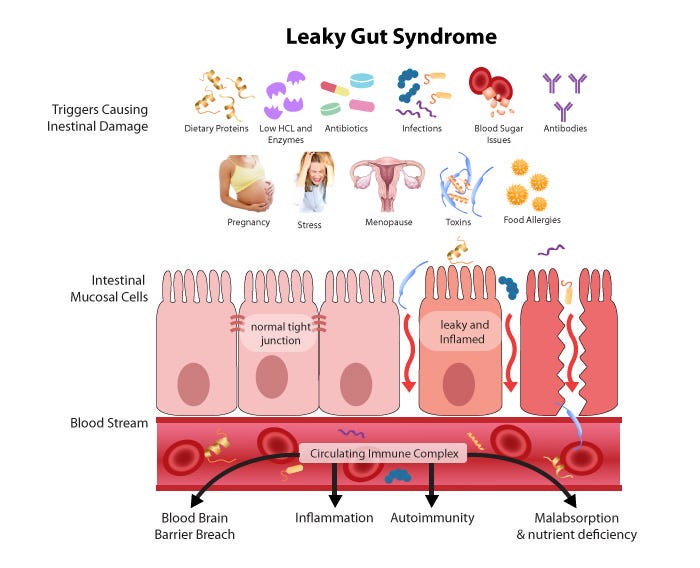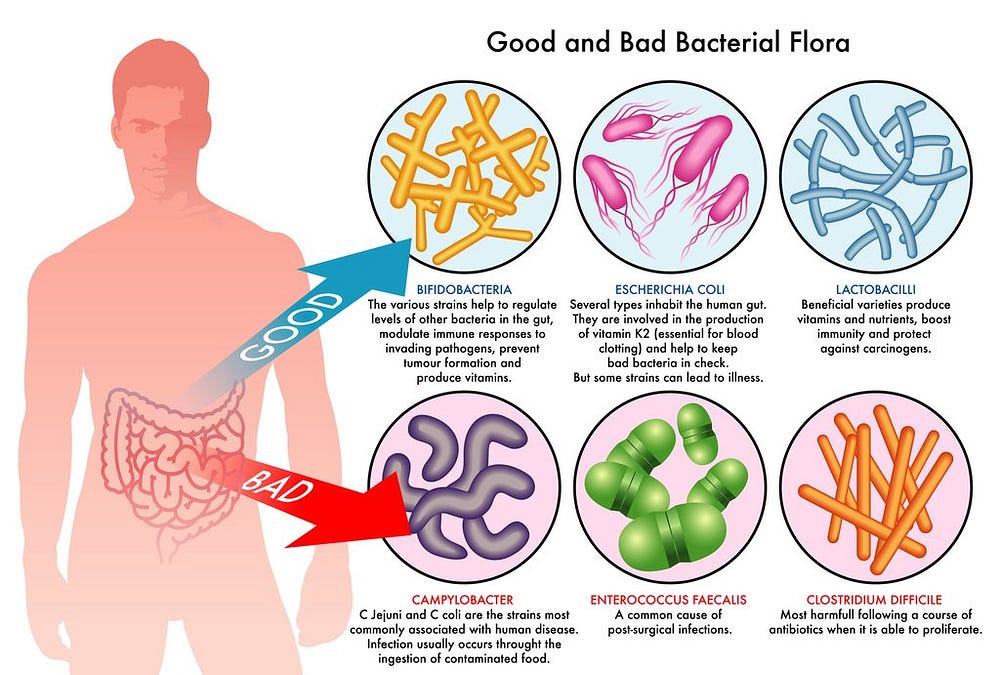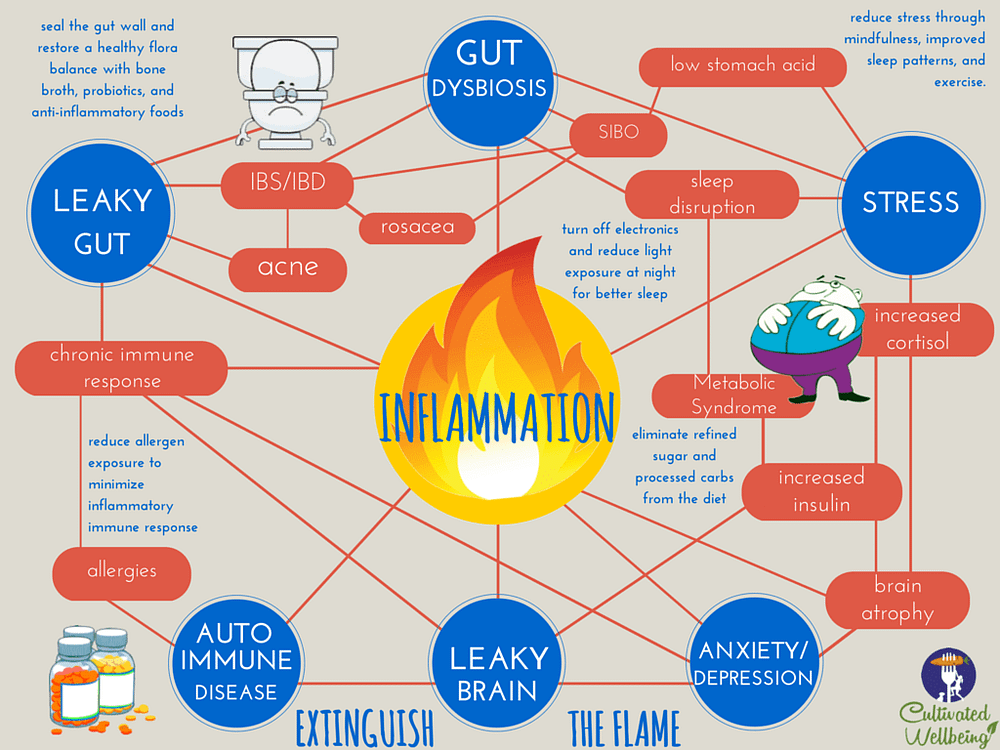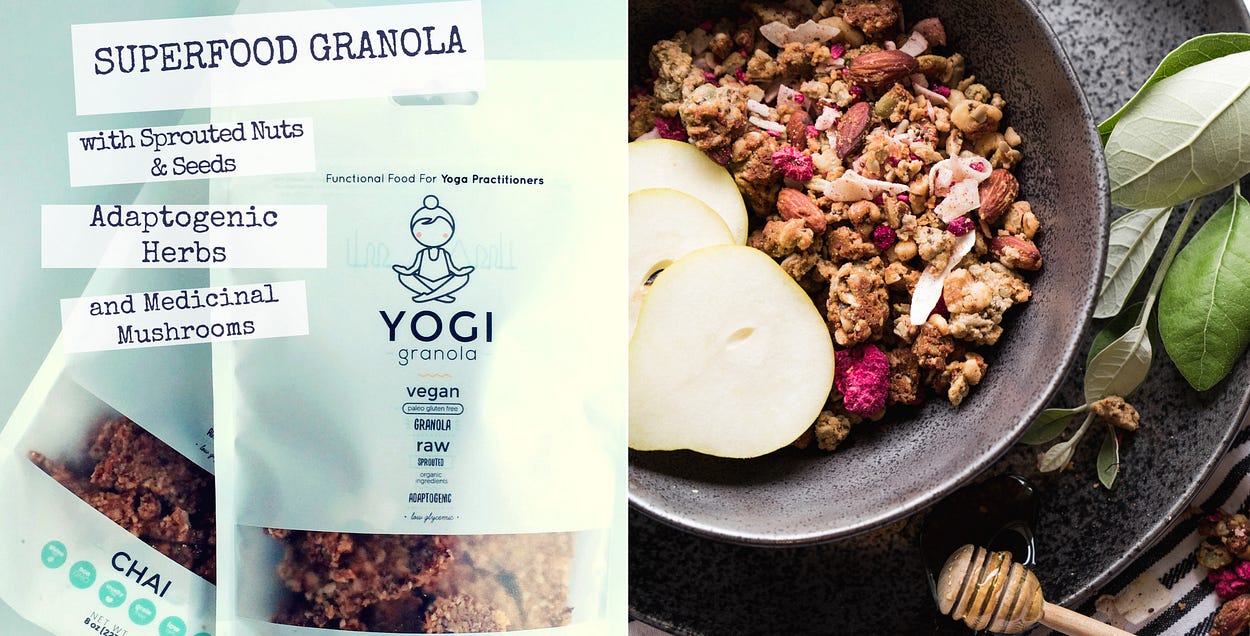What is Leaky Gut?

What leads to Leaky Gut?
A. Chronic Stress
B. Chronic infections in the gut
C. Toxicity burdens
D. Eating foods that damage the gut lining
E. All the above
The answer is “E” all above. Each of the aforementioned conditions will cause damage to the lining of the small intestine. This is called leaky gut. Leaky gut is not really a digestion issue, although gas and bloating may also be a symptom of leaky gut. Leaky gut is chronic inflammation of the intestinal lining which results in intestinal permeability over time. As a result, undigested Proteins, bacteria, and other particles enter the opening and circulate throughout your bloodstream where they cause inflammation and/or infections throughout other parts of the body.

These top 7 common foods have been shown to cause leaky gut
1. Gluten
Gluten is a protein found in wheat, barley, rye, and oats. Gluten manifest as a sticky molecule. By nature, it is hard to digest. Its sticky nature is what makes it hard for the body to break it down. Because it is sticky, it tends to get stuck within the tight junctions of the intestinal lining. Furthermore, the sources from which we derive gluten today do not resemble the foods that our ancestors ate long ago. Nowadays, all sources of gluten have been hybridized, are highly processed and often genetically modified in the laboratory before they reach our dining room table. Our bodies do not recognize the protein structure of modern gluten. And because of this, every time we eat gluten, our immune system develops antibodies to the gluten protein molecule. What this means is that each time we eat a piece of toast, our immune prepares for battle with the gluten substance from that toast. Gluten does not only cause leaky gut, it also causes other issues in the body. Numerous studies show that gluten may either cause or exacerbate ADD/ADHD, Ataxia, depression, anxiety, autism neuropathy, neurological inflammation and cognitive decline.
2. Dairy
Dairy is a very taxing substance to the lining of the intestine. It is the casein protein in dairy that is responsible for this effect. Some people are going to be more sensitive to dairy products than others. But the scientific research has clearly demonstrated that a diet that includes significant amounts of dairy products will have a huge impact on the gut microbiome, the first line of defense within our gut.
Why so? Cows are routinely exposed to antibiotics and the residue of said antibiotics end up in the milk, cheese, yogurt and other dairy products that we consume. Despite the fact that the FDA has moved to limit the use of antibiotic usage in cows, farmers routine violate FDA rules in order to force cows to work through illnesses contracted from living in very confined conditions, so that they may continue to produce milk.
3. Sugar
Sugar feeds bacteria and sugar feeds yeast. The vast majority of bacteria in your gut are there to assist and support your body, but a small percentage of the bacteria in the body may destroy your health if given an opportunity to do so. As long as the population of friendly bacteria outnumbers that of harmful bacteria, a natural state of balance and health is maintained in the gut. However, if this critical balance of shifts in favor of the bad guys, your health and wellness will begin to suffer.
How does this relate to sugar consumption? All organisms have to eat to stay alive and the bacteria in your gut feed off the food that you consume. The friendly bacteria (probiotic) depend on foods commonly referred to as prebiotic foods. Sugar, on the other hand, is the preferred food for harmful bacteria and microorganisms like yeast, mold, and fungus. The more sugar we consume, the more we encourage the growth of harmful bacteria in our gut until they eventually take over and become the dominant species of bacteria within our gut. When bad bacteria take over the neighborhood that comprises our gut, our immune system is repeatedly called upon to constantly fight them off. This leads to a state of chronic inflammation within the gut that will ultimately affect other areas of the body.
Choose natural and low glycemic sweeteners like local raw honey, monk fruit or maple syrup and avoid refined or processed sugars at all cost.
Easy Tip To Get More Prebiotic Foods Into Your Diet:
Eat more sprouted nuts, sprouted seeds, fermented foods and resistant starch containing foods every day!
4. Grain
Carbohydrates can be difficult to fully digest in general, so it makes sense that people suffering from digestive issues may find it more difficult to digest carb-rich foods like grains. In addition to that, numerous grain-producing plants(the source of most of the carbs we eat) have developed defense mechanisms to prevent themselves from being consumed. Roses come with thorns. Poison Ivy generates irritating chemicals that cause you to itch if you touch them. Grains, however, contain what are called lectins. Although many foods have lectins, grains are known to contain lectins known to cause more harm.
What Are Lectins?
Lectins are indigestible proteins. Proteins are usually broken down into amino acids and absorbed by the intestines (the gut). Since we are not able to digest lectins, they sometimes seep through the wall of our gut lining without being digested, in complete solid form. So, when lectins seep through the gut as a complete, undigested protein, our immune system misreads them for foreign invaders and launches an attack which results in inflammation. If you eat grains every day there is a high probability that your body is in a chronic state of inflammation.

5. Genetically Modified Foods (GMO Crops)
Genetically modified foods are genetically engineered to be able to absorb more herbicides. This high amounts of herbicides and pesticides within these plants expose our gut to a large amount of toxin that our bodies have not evolved to deal with efficiently.
Furthermore, Glyphosate, the famous herbicide sprayed on genetically modified crops disrupts the population of probiotic bacteria in the gut and encourages the growth of harmful bad bacterial strains. This leads to immune system dis-regulation, chronic inflammation, gut dysbiosis, depression, and behavior.
6. Soy
Soybeans contain very high amounts of known anti-nutrients like saponins, phytates, trypsin inhibitors, goitrogens and phytoestrogens that have all been linked to symptoms of digestive distress. If Soy is fermented, however, these anti-nutrients get destroyed or deactivated by bacteria during the fermentation process. The problem is that most people in western societies do not consume fermented soy products like Natto, Tempeh or Miso. Instead, we have been encouraged to eat copious amounts of non-fermented tofu and other soy derivative products like soy milk, textured vegetable protein, and soy-based infant formula.
7. Tap Water
Proper Hydration is absolutely necessary for sound health. After all, our body is 60% to 70% water. Being adequately hydrated is just not good enough. The type of water you put into your body goes a long way to determining the state of your gut health. Although not technically a food, water is so crucial to our survival that it ranks up there with food. Tap water is often treated with hundreds of chemicals to render it safe for human consumption. While this is necessary and legally mandated in most developed countries, the same chemicals added to the water supply to kill harmful bacteria also kill the friendly probiotic bacteria. This is further complicated by the fact that our modern water supply contains detectable amounts of antibiotic residue and various other chemical compounds that leach into the water supply.
So, What Should We Eat?
This is the best time ever to be asking that question. The growing backlash to large industrial food companies has given rise to an army of small, artisan food producers who innovate by bringing back ancient ways of food production and food preparation involving minimal processing techniques that preserve nutrients and neutralize anti-nutrients.
One standout brand is Yogi Granola, a handcrafted superfood granola that combines sprouted nuts and sprouted seeds with adaptogenic herbs, superfoods, natural prebiotic foods and medicinal mushrooms that have been shown to optimize gut health, reduce inflammation, enhance brain function, reduce anxiety and support the musculoskeletal system.

Yogi Granola is formulated with adaptogens, superfoods and medicinal mushrooms like holy basil (tulsi), Ginseng, Schizandra, maca, ashwagandha, chaga, reishi and lion’s mane and numerous other raw natural ingredients.
Adaptogens are a class of herbs, roots, and mushrooms that have demonstrated the ability to combat stress by interacting with the Hypothalamic Pituitary Adrenal Axis(HPA) to bring about a state of balance within the hormonal systems of the body.
Superfoods are defined as highly-mineralized, micro-nutrient dense, calorie-sparse foods that almost everyone can eat.
In conclusion, micro-nutrient dense foods appear to be our single best ally in an increasingly toxic and nutrient deficient world. Time and time again, those who eat foods rich in micronutrients demonstrate:
Improved Memory and Concentration
Improved Blood Lipid Profile
Improved Cardiovascular Function
Reduced Cancer Risk
Improved and Balance Gut
Visit Yogigranola.com to learn more about the Superfood granola.


